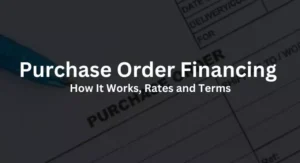
Students, young professionals, and professionals changing careers have opportunity to expand their abilities, Work Experience or Free Labor network, and get practical experience in their chosen industry via internships. Interns provide businesses with new insights, a variety of skill sets, and an additional pair of hands for brand-new initiatives. The contract should be advantageous to both sides. However, organizations that choose for unpaid internships instead of paying their interns confront a distinct set of ethical and legal issues.
Also Read: The Science of Persuasion: How to Influence Consumer Choice
Are unpaid internships legal?
The Fair Labor Standards Act (FLSA) of 1938 mandates that all employees of for-profit businesses get compensation for their labour. Interns are not, however, covered by the FLSA as workers. Learn how a FLSA self-audit may assist your company in maintaining FLSA compliance.
So are unpaid internships permitted? The gist of the response is affirmative, provided that the intern and not the employer is the “principal beneficiary” of the employment relationship. Due of the subjectivity of the topic, employers and interns may have different opinions on who gains the most from the arrangement. When you combine this uncertainty with the numerous state-by-state requirements, the expenses for businesses might often exceed the advantages.
Primary beneficiary test
It may be tempting to think that all unpaid internships are advantageous to both parties; after all, who would take one if it weren’t? However, just because an intern is willing to work unpaid doesn’t mean that their job is necessarily morally or legally right. Businesses must make sure that unpaid internships are really advantageous to the interns. In a court of law, the question of who benefits more cannot be answered by citing “shared advantages” alone. Depending on whatever side you ask, the response may vary.
The U.S. Department of Labor responds to this ambiguous query with a flexible seven-part main beneficiary test, which it amended in 2018 from a stricter six-point test. The exam is exclusively for for-profit businesses; depending on whether their interns are volunteers or workers, public sector and nonprofit organizations are subject to different rules.
The test determines that an intern is a key beneficiary if they satisfy the following requirements:
- The intern is aware that they will not be paid.
- Training is similar to the kind of training you might get in a classroom.
- The intern’s present educational programme and the internship are connected (e.g., the intern is getting academic credit).
- The intern’s academic schedule is accommodated by the internship.
- The internship is only available for as long as the intern learns anything useful.
- The intern’s job provides valuable learning while enhancing (not replacing) the work of current workers.
- It is acknowledged that the internship does not entitle the participant to employment upon completion.
The intern is an employee who is entitled to at least minimum pay if an examination of these seven factors reveals that the employer is the main gainer. The exam is more like a series of recommendations than a set of rules, which is where the tough part comes in. It’s understandable that many employers and interns are left perplexed in the absence of any clear guidelines.
Labels are meaningless, as Brandon Ruiz, a lawyer with the Los Angeles firm Hennig Kramer Ruiz & Singh, tells employers.
“It is unlikely to be an internship,” Ruiz stated, “if the intern does work that benefits the company and that would otherwise be undertaken by a normal employee.” It is more likely to be an internship if the job is done largely for the intern’s benefit and not work that would normally be done by an employee.
To put it another way, just changing an assistant’s title to “intern” does not eliminate their claim to pay. Internships are not a method to get free labour, according to Ruiz.
This policy also applies to foreign students who aren’t allowed to work in the US. Even though these students are only permitted to take part in unpaid internships, the internship must nevertheless satisfy the main beneficiary test; the students’ ineligibility for payment does not give employers a legal pass. Additionally, if the Department of Labor determines that an international student’s internship violated the FLSA, that intern may also be in breach of the conditions governing their immigration status. In such circumstances, the intern can also face punishment in the form of deportation in addition to the employer.
State legislation on unpaid internships
Before employing any interns, employers that are unconvinced by the main beneficiary criteria should consult their state. Unpaid internships are not subject to any severe regulations from the federal government, however several state governments do have more detailed restrictions. Many provide their own standards while others make the seven-point test’s flexible rules obligatory.
For instance, New York stipulates that internships must provide transferrable training as opposed to company-specific instruction and cannot give any “immediate benefit” to the employer, even if the intern is the main gainer. It is practically impossible for a company to make money from an unpaid internship because, as stated by the New York State Department of Labor, “In most circumstances, interns will require employers to dedicate resources that may actually detract from the productivity of the worksite for some period.”
Unpaid internships are subject to among of the country’s tightest regulations in California, which mandates that all programmes be run under and under the supervision of an approved school or vocational programme. Before recruiting interns, employers must also submit an internship proposal to the Division of Labor Standards Enforcement. Any internship that falls short of these requirements must pay at least the federal minimum wage.
What are the benefits of unpaid internships?
Why would someone want to serve as an intern for free when they wouldn’t get paid? Unpaid internships may be beneficial for college students who want to start their careers since they can get valuable professional experience. They can see internships as “purchasing” job experience as opposed to providing their services to a company for free. After all, strong, distinctive resumes loaded with internships are quite important for young professionals.
Keeon Yazdani, a marketing strategist who has worked with interns at a variety of organizations, including CBD’R US, an online cannabis company, stated, “We’ve discovered that interning marketing majors has been advantageous for both us and the interns.” “We provide interns the chance to understand how a small business runs while they offer their opinion on social media and how to keep the younger population interested in our content,” the company claims. How Social Media Is Changing Business is a related article.
The founder of the copywriting firm Signify, Kristi Porter, a Georgian, similarly found her unpaid internship programme to be a generally favourable experience for both her and the interns she has recruited.
Because I just need five hours a week, Porter said, the position is unpaid. “Everyone has been cooperative with our plan, and I think they all enjoyed themselves and learnt a lot. It’s also fantastic to sometimes have other people’s perspectives and views as a one-woman company.
Through their internships, neither Signify nor CBD’R US offered academic or professional credit. Although I’ve previously provided class credit, nobody has accepted it, according to Porter. They seem to be more interested in the experience than anything else.
What are the risks of hiring unpaid interns?
Although they are still the main beneficiaries of the internship, unpaid interns might benefit your company well. However, there are drawbacks and dangers associated with employing unpaid interns.
Legal hurdles
Businesses that are still interested in using unpaid interns can inquire about the FLSA’s applicability with their local Department of Labor Wage and Hour Division office. But they should anticipate a loud “yes” as the response.
Even legitimate unpaid internships walk a tight line of conformity, where mistakes are expensive. Small firms do not have the luxury of legal expenses, which some major corporations may use to their advantage (paying one intern an out-of-court settlement is still less expensive than paying 25 interns’ salary).
Before employing an intern, make sure the internship is compatible with the law since it will often be less expensive in the long run, according to Ruiz.
Additionally, it might be simple for small firms to neglect their legal obligations when some college students are willing to labour for free. Many well-meaning employers may be shocked to realise that their unofficial internship programmes violate labour rules.
As a result, small company owners should exercise prudence. The following advice, albeit not legally necessary in all states, may assist avoid conflicts between your company and an unpaid intern:
- Put any agreements on payment and commitment in writing.
- Make sure that both the intern and their supervisor sign the internship agreement.
- Record your hours and overtime in a log.
- Wherever feasible, provide college credit.
- Keep your training generic and transportable; avoid giving out menial tasks. It could be useful to use some tried-and-true staff training strategies.
Quality issues
Not all unpaid interns are only driven by altruistic ambition. Even if they are gaining essential professional experience, they may not be motivated to provide their best work if they are not paid. Unpaid interns could take their internship less seriously than ones who are compensated and might be less dedicated as a result.
Some companies believe that a paid intern’s superior skill overcomes an unpaid intern’s cost-effectiveness. When deciding on its own recruiting procedure, The Hire Talent, a business that offers pre-employment tests to recruiters, reached this result. The Hire Talent chooses to pay its interns on an hourly basis rather than providing no remuneration as a result.
The CEO of the firm, Fletcher Wimbush, said, “This makes us more competitive for the top personnel. For us, it’s a really affordable approach to try out new concepts.
When Russell D. Knight, a divorce lawyer in Chicago, hired interns for his family law company, he found the same to be true.
If you pay someone even a little bit, the quality of their job is always greater, according to Knight. “Do you really really want the intern there if they aren’t contributing more than double the minimum wage?”
How are unpaid internships and economic inequality related?
It is important to think about the ethical ramifications of unpaid internships before you start navigating the legal requirements to hire one.
It may be difficult to see how a single unpaid internship may be detrimental given that the intern has consented to the arrangement and is free to terminate it at any moment. However, overall social and economic mobility may be harmed by unpaid internships. Think about the impact of unpaid internships on students who cannot afford to labour for nothing. For students from poorer socioeconomic backgrounds, unpaid internships cost them money they might be earning in another part-time or full-time job in addition to their time. These students’ disadvantage becomes even more apparent after graduation, when they have less professional experience than those who have the financial stability to undertake unpaid labour.
Unpaid internships have the potential to start a vicious cycle by rewarding students who are already advantaged financially while increasing competition for everyone else. It’s important to remember that there are other moral considerations at play in addition to your intern’s welfare.
What are tips for hiring unpaid interns?
You’ll need to know how to employ interns if, after assessing the benefits and drawbacks, you decide to create an unpaid internship programme.
Where to find unpaid interns
Find fresh intern jobs in a variety of locations. Internships are often attractive to young individuals who are still pursuing their degree and experience in their area of interest. This indicates that you should start your search at colleges and technical institutions. Both are capable of hosting live or virtual job fairs.
Digital recruitment is the way of the future, so utilize online job platforms like Indeed.com to aid in your search. To increase your chances, you might search for employment boards dedicated to your sector. Consider promoting your offer on LinkedIn as well.
Last but not least, you might discover interns by using your personal and professional networks. Your connections could be able to put you in touch with students looking for internships, their previous interns, or even their own candidate pool. The hiring process may be streamlined with direct references, such as contacts from your college’s alumni network.
How to develop an internship program?
Depending on the requirements and scope of your business, creating an internship programme might be a minor or major undertaking. Determine the precise objectives you have for the internship programme. Are you attempting to recruit interns to your company to fill open positions or carry out certain duties? Do you wish to develop talent for next hiring’s?
The program’s design comes next once your program’s objectives have been described. A few elements are essential to every effective internship programme. First, an orientation strategy is required. Interns require open communication about expectations and goals since they are not seasoned professionals. Be ready to collaborate with your interns and make sure they understand how their performance will be measured at your business. Aspects of the internships should also be customized to their individual professional interests and aspirations. They also want effective mentors who can make sure they have the support they require to excel in both this position and their future professional ambitions.
What tasks can unpaid interns perform?
Interns should ideally do low-risk jobs associated with their area of study. For example, a writing intern may do the prewriting and research for a piece that will be finished by a professional. An engineering student could do some fieldwork (with supervision). The job that interns do for your business should be suitable for the role and advance their professional careers.
On the other hand, interns shouldn’t be required to do menial tasks, conduct errands, or just pick up the slack in areas where current workers are uninterested. Additionally, keep in mind that interns shouldn’t be doing paid staff duties unpaid; rather, their contributions should enhance the job already being done by the organization.
Can you profit from unpaid internships?
Lucrative unpaid internships are uncommonly legal, and legal unpaid internships are uncommonly profitable. The uncommon instances in the middle of the Venn diagram still have moral ramifications. Even while you may not have to pay wages, you will still have expenses. There is no such thing as a free intern to bring you lunch, just as there is no such thing as a free lunch.





